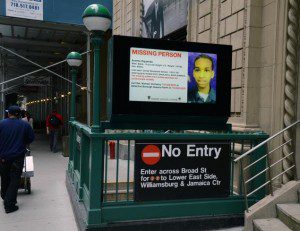 I stood in the lunchroom of my son’s school watching him go through his routine – get his lunch from the refrigerator, unzip his lunch box and take the Tupperware filled with biryani (of course he had biryani for lunch!) out and wait for his turn at the microwave. Then, when his turn came, he removed the lid and heated up his food, then took it to his table near the window to eat.
I stood in the lunchroom of my son’s school watching him go through his routine – get his lunch from the refrigerator, unzip his lunch box and take the Tupperware filled with biryani (of course he had biryani for lunch!) out and wait for his turn at the microwave. Then, when his turn came, he removed the lid and heated up his food, then took it to his table near the window to eat.
This was all done with multiple gesture prompts and assistance, redirection, praise and sharp vigilance on the part of his teachers, who were directing many other children through their lunchtime routines. It was a buzzing lunchroom of kids on all ends of the autism spectrum eating, cleaning their space, throwing their trash away, hopping up from their seats and being redirected to sit and eat, showing excitement at their food or frustration at any number of things.
And all the while the teachers were there, watching over things, supporting, standing back when need be, helping the kids eat and fostering discussions and social interactions at all turns.
They were watching, even when it looked like they weren’t, they were watching over the kids.
Because at one point a young man, perhaps the same age as Lil D, got up and bolted out the backdoor of the lunchroom and ran out, right in front of me.
Before I could even speak up, another teacher sprinted out after him and stopped him, guiding him back inside. Once inside, the boy sat back down and finished eating. Lil D’s program coordinator, who was hanging out with me during my observation, remarked, “They’re fast. They see things I don’t always see sometimes.”
Even if the teacher hadn’t sprinted after the boy, it would’ve been hard for him to get out, given that the courtyard outside the entrance of the school is fenced in. Still, it was sobering to see things unfolding in front of me.
Because it just takes a second. One second.
Today, Avonte Oquendo, a 14-year-old boy with autism who is nonverbal, has been missing three weeks in New York City. Three weeks ago, while there was some sort of disruption in the lunchroom and his aide/teachers were supposedly distracted, he left and wandered out a side door. And, there was a security officer at that door. The security officer asked Avonte where he was going, and when Avonte didn’t respond – because he is nonverbal – he let the boy go.
Pause and digest that. He let the boy go.
It just took a second. One second. And one fatal mistake.
And now, despite a reward of $90,000 being offered, despite a huge manhunt, despite the New York metro transit shutting down the subway system for some time to search the tunnels, despite Avonte’s mom’s voice being broadcast throughout the streets, calling for her son to come out, despite candlelight vigils, prayers, fliers being handed out and plastered all over, despite the best efforts of his family and the community – he is still missing.
A year and a half ago, Lil D, who is not an eloper (someone who routinely wanders off or tries to bolt or run away) by habit, wandered out of our home twice. It took me completely by surprise. The first time, he was playing indoors while I was in the backyard with our youngest son. Our daughter was having a play date with a friend. I ushered Hamza inside and we settled on the couch to watch Tom and Jerry.
It had been a long day, and soon my eyelids drooped. Before I knew it, ten minutes had passed by. I woke with a start and perked my ears up to listen for the Lil D’s sounds.
Silence.
So I looked throughout the house, casual at first, certain I would find him in one of his usual spots. Quickly my search grew frantic, as I called for him by name. Then I called out, “Do you want a cookie? Do you want chocolate? Do you want beads?” I was certain the mention of these favorite items would draw him out.
But all my questions were met with a silent house. My panic grew. My son doesn’t leave the house on his own volition. Where could he be? But our door leading to the garage had been left unlocked. And the garage door was open. What if …
I left Hamza watching his cartoons and ran onto the street, trying to figure out which way Lil D might’ve gone. I called my husband. He’s gone. I looked all over the house. He never leaves the house. I just dozed for a few minutes on the couch with Hamza. I can’t find Lil D. I’m looking in the streets. Come home!
As I rounded the corner of our street, I saw a police car parked down the road in our quiet neighborhood, lights flashing. My heart dropped, and I sprinted towards the car. As I drew near, I saw him – Lil D, wandering aimlessly on the street in his pajamas, dirty socks flapping on his feet. I ran to him and hugged him as tight as I could.
He had wandered out of our house, turned the corner and had gone into the back yard of a neighbor I didn’t know, playing with the sand in their sandbox – letting it fall through their fingers. This neighbor’s children had been playing out back and when Lil D didn’t answer as they called to him; the eldest boy went and got his mom. He told me that he had seen Lil D before, the mom told me. And he knew your car had an autism license plate. So we knew we should call the cops help us find you, because we didn’t know which one your house was.
Hands down, it was one of the scariest experiences of my life. That feeling of utter panic, of helplessness, of a sickly fear making me feel like I was going to throw up everything inside of me – it lasted the mere ten minutes it took to find Lil D.
Avonte has been missing three weeks.
On the various autism Facebook groups I am on, the prevailing concern is about Avonte, about all our children with autism spectrum disability. The questions are – what do we do about it? How do we make our schools safer? How do we teach our children, with all their different challenges, to react if they get lost? How do we always watch the children who are known to run or elope? What about all our kids? What about autistic children, teens and adults who are nonverbal? Those who cannot look after themselves? What if they wander or are taken? Because even if your child with autism is not known for wandering, one day, one minute one second you will look away, and it may happen.
It did with Lil D. Twice.
And, it has happened with so many children.
Consider these facts found on the National Autism Association website:
- Roughly half, or 48%, of children with an ASD attempt to elope from a safe environment, a rate nearly four times higher than their unaffected siblings
- In 2009, 2010, and 2011, accidental drowning accounted for 91% total U.S. deaths reported in children with an ASD ages 14 and younger subsequent to wandering/elopement.
- More than one-third of ASD children who wander/elope are never or rarely able to communicate their name, address, or phone number
- Two in three parents of elopers reported their missing children had a “close call” with a traffic injury
- 32 percent of parents reported a “close call” with a possible drowning
- Wandering was ranked among the most stressful ASD behaviors by 58% of parents of elopers
- 62 percent of families of children who elope were prevented from attending/enjoying activities outside the home due to fear of wandering
- 40 percent of parents had suffered sleep disruption due to fear of elopement
I have said this so many times before: It takes an incredible amount of unbearable, gut-wrenching trust to send our children out into the world. But we do, day after day, because our children need to learn how to live in this world, and the world needs to live with, watch out for and care for our children. And it takes just one, brief, never-can-get-back second for our children to wander away or for someone to take advantage of them.
So what are we – and I mean a whole-world-collective we – going to do?
If you have any information on the whereabouts of Avonte, please call 800-577-TIPS or visit www.crimestoppers.nyc.gov. Photo courtesy of CBS












